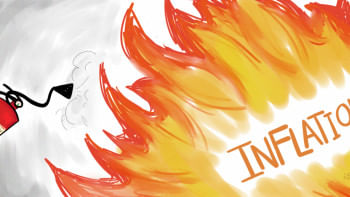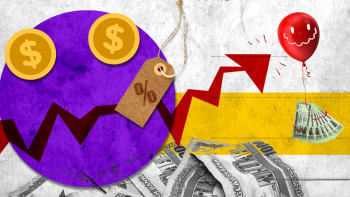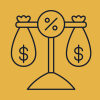Time to set realistic dollar exchange rates

Amid myriad challenges overwhelming the banking sector—liquidity shortfall, dollar crisis, money laundering, loan scams and defaults—we are alarmed to learn of a new trend of irregularity that may further destabilise it. According to a report by this daily, a number of banks have been paying Tk 120-125 per dollar to remitters. This is in violation of the maximum rate of Tk 116 per dollar set for inward remittance by the Bangladesh Foreign Exchange Dealers' Association (Bafeda) and Association of Bankers, Bangladesh (ABB)—based on an unofficial directive of Bangladesh Bank.
While this trend has boosted the remittance earnings of some banks, we are apprehensive of its potential repercussions in the long run. Some effects are already visible. The managing director of a state-owned bank has said that since he was unable to defy the Bafeda-ABB rate like some of their private counterparts, the bank has been losing out on increased foreign exchange earnings. That such violations would occur less than two months after the central bank had fined 10 banks for manipulating the dollar exchange rate is alarming.
The more concerning issue is the lack of discipline within the banking sector that has become evident through this turn of events. Another report by this daily revealed that importers are paying higher than the stipulated rate of Tk 111 per dollar—albeit under various "arrangements." Edible oil refiners even wrote to the Bangladesh Trade and Tariff Commission, asking it to raise cooking oil prices so they could cover the increased costs incurred by inflated exchange rates. Traders also said that sometimes even paying the higher rates that some banks demand cannot guarantee access to the required amounts of the greenback, thanks to the dollar crunch we are facing.
But can the banks be solely blamed for this situation? Even with the official rates, the outflow of foreign exchange clearly surpasses the inflow. Unofficially, the banks have to buy dollars from exporters and remitters at higher rates, as the chief of treasury of a private bank told this daily. This is certainly not sustainable as the banks stand to incur significant losses.
The responsibility to check this, we must say, lies with the regulators. This situation has once again brought to light their failure to make pragmatic decisions to maintain discipline in the banking sector. Right now, the central bank should prioritise ensuring that all the banks operate under its regulations. And to this end, it must revise said regulations in line with the market trend. A realistic adjustment of the exchange rates, as experts have been recommending for months now, would serve the banks, traders and all others involved.


 For all latest news, follow The Daily Star's Google News channel.
For all latest news, follow The Daily Star's Google News channel. 











Comments